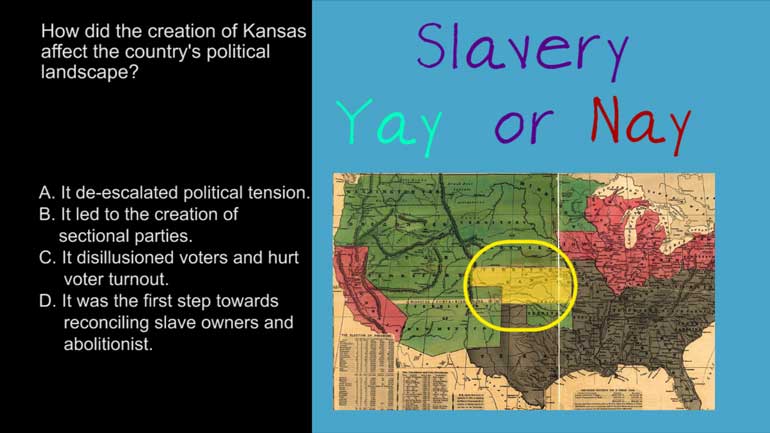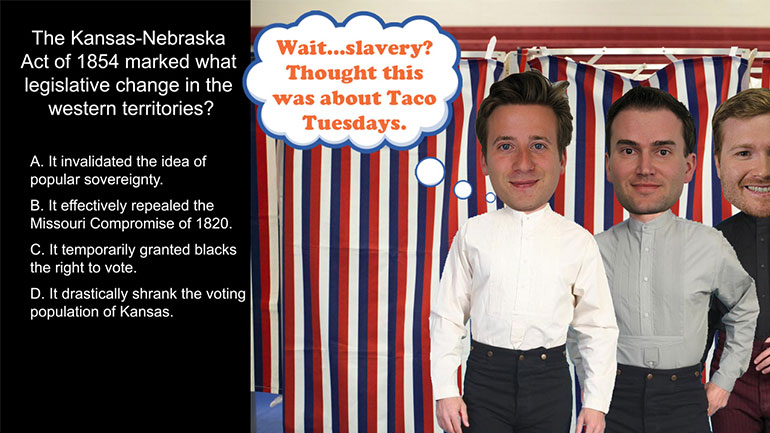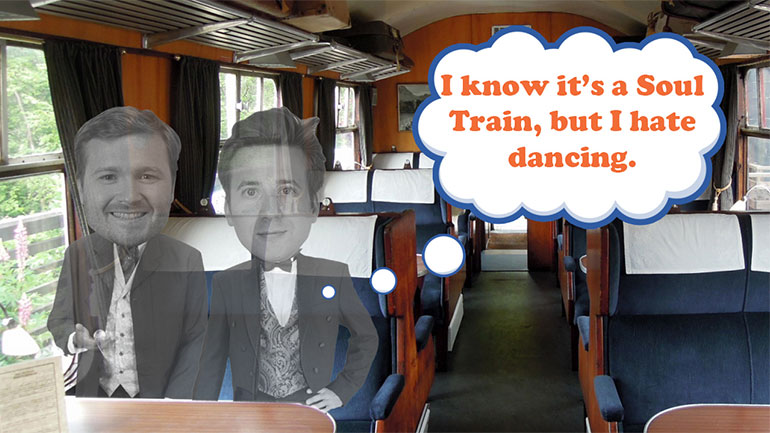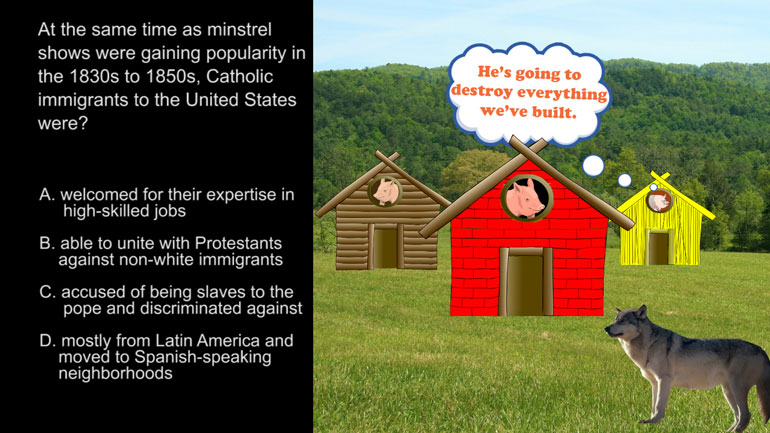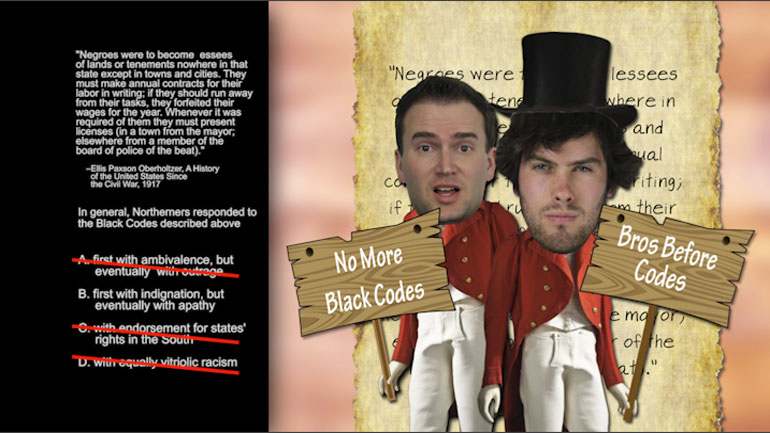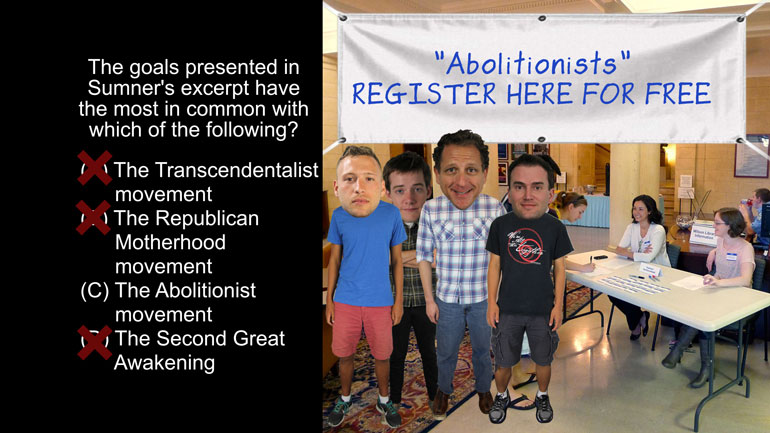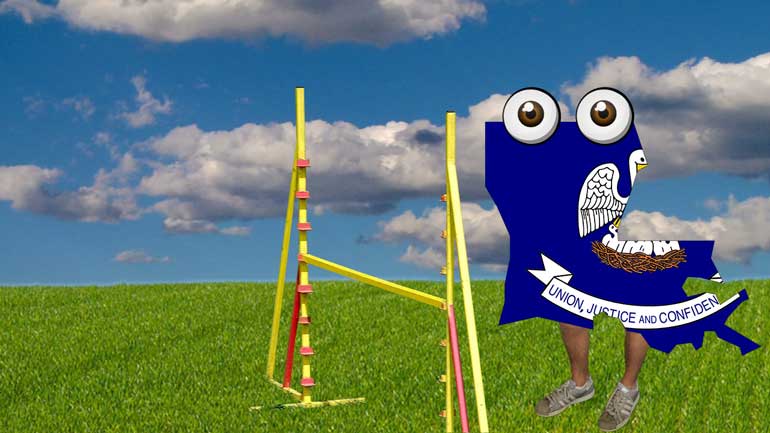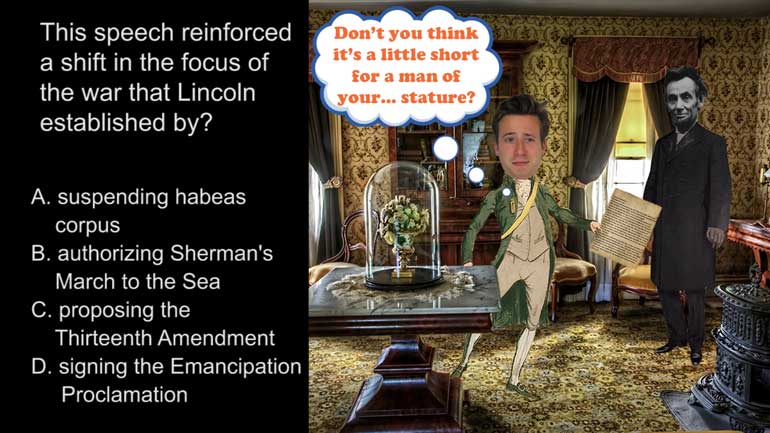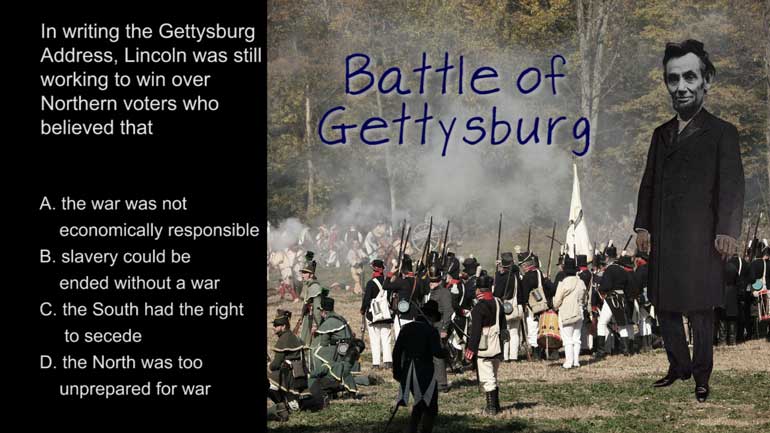ShmoopTube
Where Monty Python meets your 10th grade teacher.
Search Thousands of Shmoop Videos
Period 5: 1848-1877 Videos 18 videos
AP U.S. History 2.3 Period 5: 1848-1877. Which of the following trends most severely undermines the intentions of the Thirteenth Amendment?
AP U.S. History 4.3 Period 5: 1848-1877. The increased awareness of the 14th and 15th Amendments during the 1860s is most similar to which of the f...
AP U.S. History 1.1 Period 5: 1848-1877. Which of the following groups would be most likely to support the idea of Manifest Destiny?
AP U.S. History 1.5 Period 5: 1848-1877 219 Views
Share It!
Description:
AP U.S. History 1.5 Period 5: 1848-1877. The railroad built through Kansas in the mid-19th century developed primarily...how?
Transcript
- 00:00
[ musical flourish ]
- 00:03
And here's your Shmoop du jour, brought to you by the caboose,
- 00:06
the part of the train reserved for ghost passengers.
- 00:10
Ooh.
- 00:11
Yeah, that's the spirit.
Full Transcript
- 00:12
Okay.
- 00:13
The railroad built through Kansas in the mid-19th century
- 00:16
developed primarily... how?
- 00:19
And here are your potential answers. [ ding ]
- 00:24
All right. A railroad isn't very useful if there's
- 00:27
nobody around to use it. It's like that tree falling in the woods.
- 00:30
At the same time, people aren't gonna uproot their lives
- 00:33
and move to the middle of nowhere if there isn't any infrastructure to support them.
- 00:37
Let's see which answer best captures that dilemma.
- 00:40
Did the railroads in Kansas develop primarily
- 00:43
A - after the state had a sizeable population?
- 00:46
Well, actually, most of these railroads were built for the
- 00:49
early adopters, the trailblazers
- 00:51
who would settle the land before the masses came.
- 00:54
Were the railroads built in Kansas B -
- 00:56
despite the opposition against them in Congress?
- 01:00
Well, knowing that reliable transportation was necessary
- 01:03
for westward expansion, Congress passed several
- 01:05
Pacific Railway Acts in the 1860s
- 01:09
which gave huge land grants to homesteaders
- 01:11
and railroad companies.
- 01:13
So we know it can't be B or C.
- 01:15
Which means the Kansas railroads developed primarily
- 01:18
D - due to land incentives for railroad companies
- 01:22
and homesteaders. Moving west and setting up new towns
- 01:25
was a pretty risky business,
- 01:27
so Congress offered sweet deals to railroad companies
- 01:30
and homesteaders willing to take the plunge.
- 01:33
Pretty easy to follow that train of thought, right?
- 01:35
[ chuckles ]
Related Videos
AP U.S. History Exam 2.45. The journey shown on the map was an example of...what?
AP U.S. History Exam 2.26. This speech reinforced a shift in the focus of the war that Lincoln established by...what?
What did the Spanish messengers bring with them to North America? Hint: you probably wouldn't be thrilled to get this for your next birthday.
AP U.S. History Diagnostic 24. How did the United States choose containment over the National Security Council Report in Latin America?
AP U.S. History Exam 2.25. In writing the Gettysburg Address, Lincoln was still working to win over Northern voters who believed that...what?




